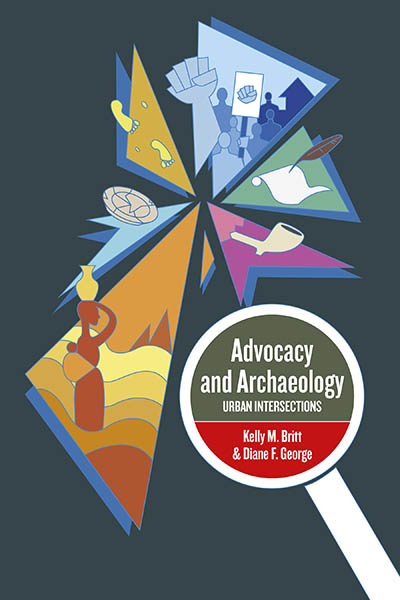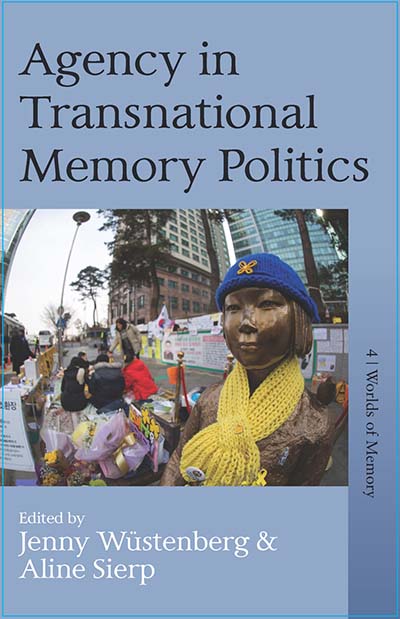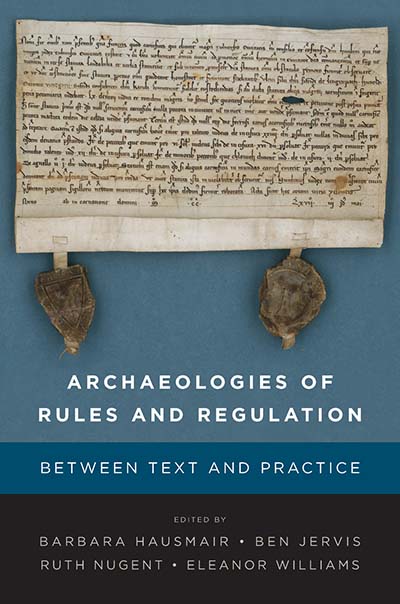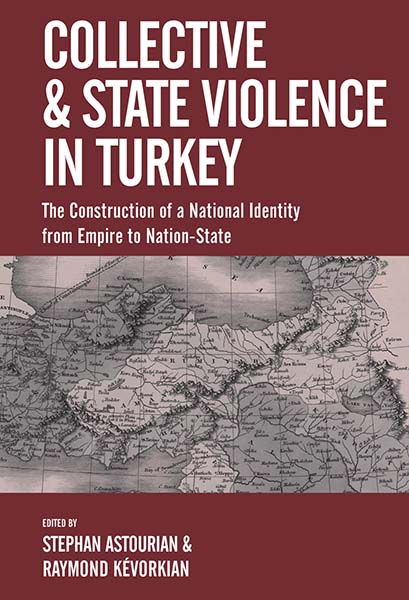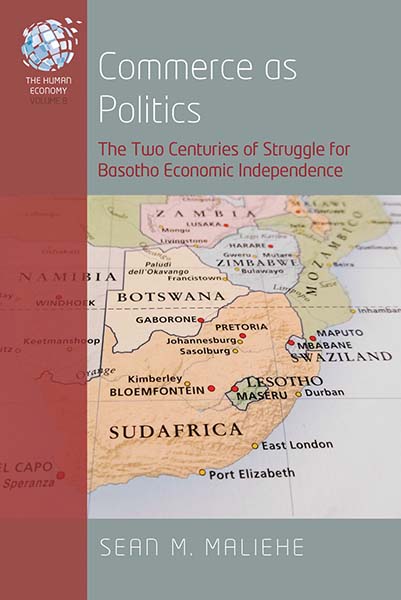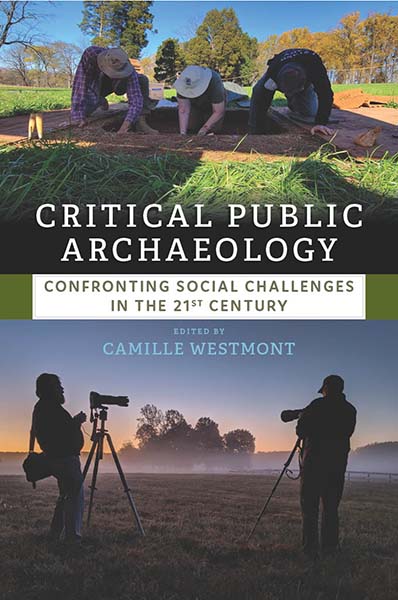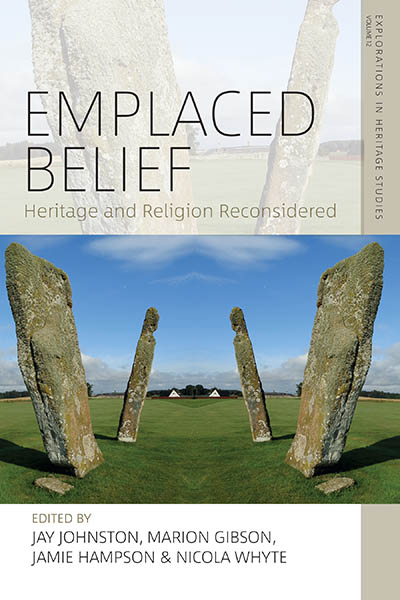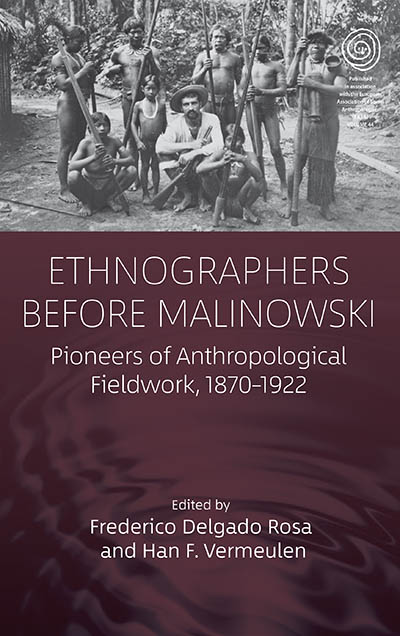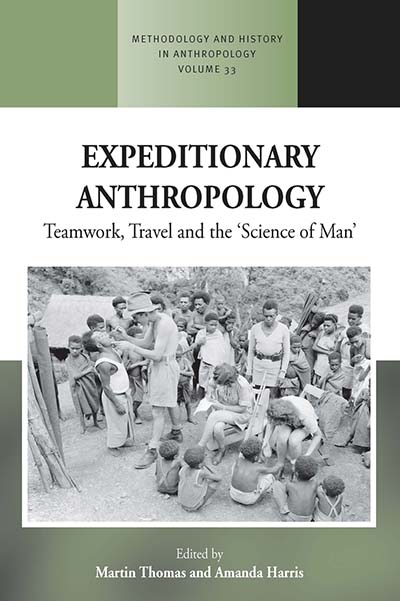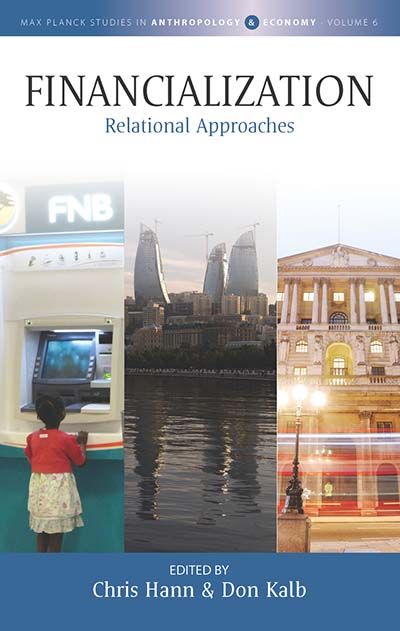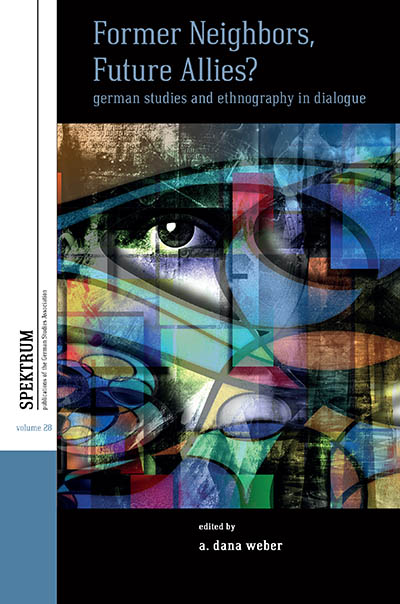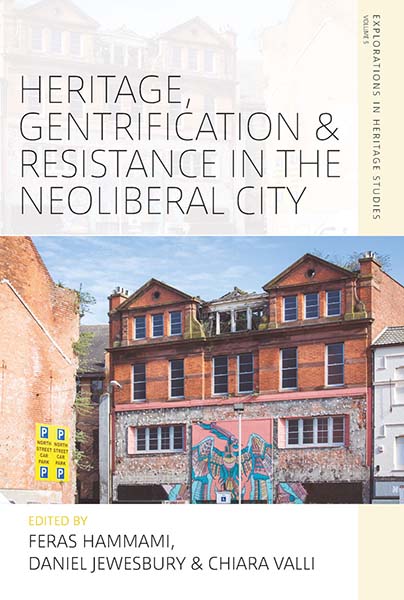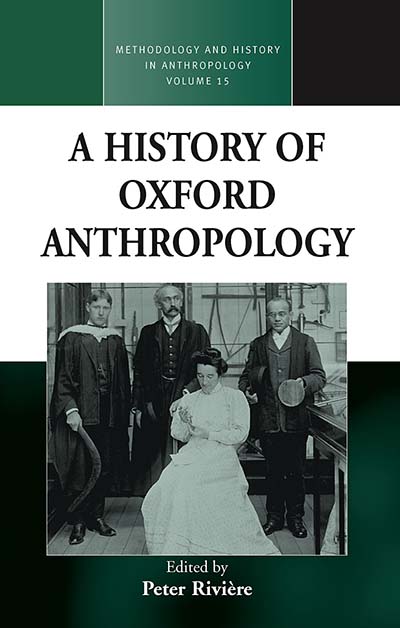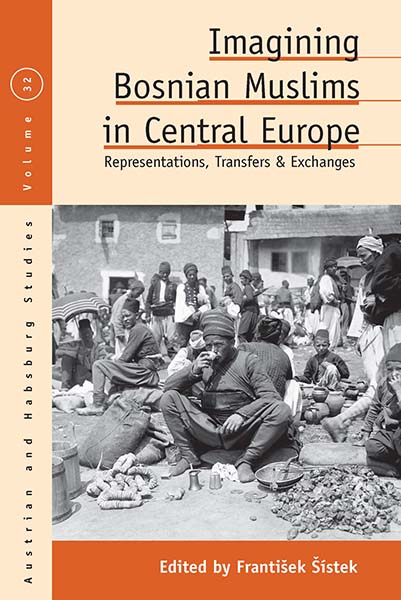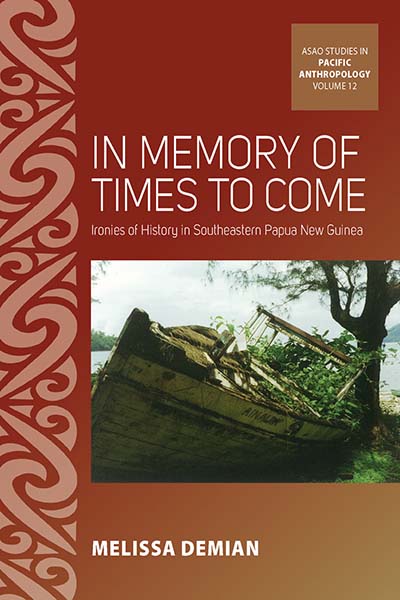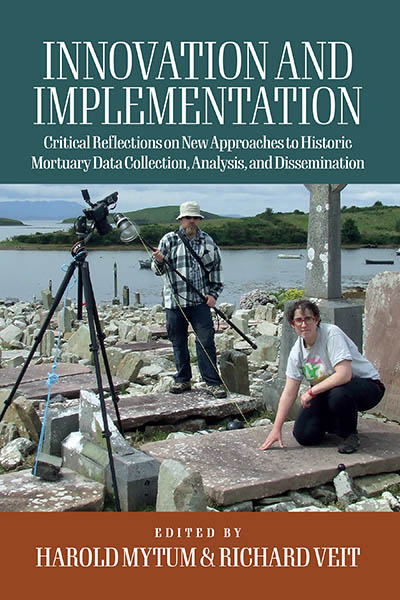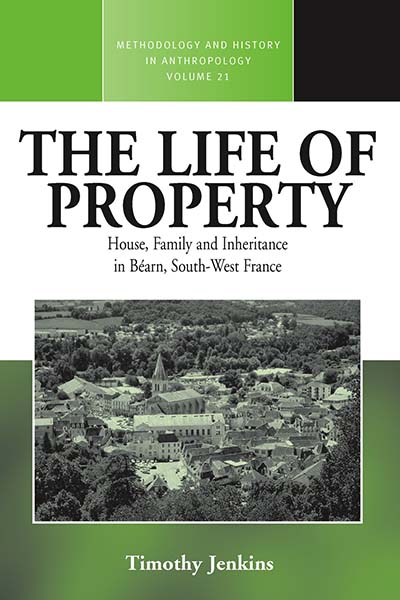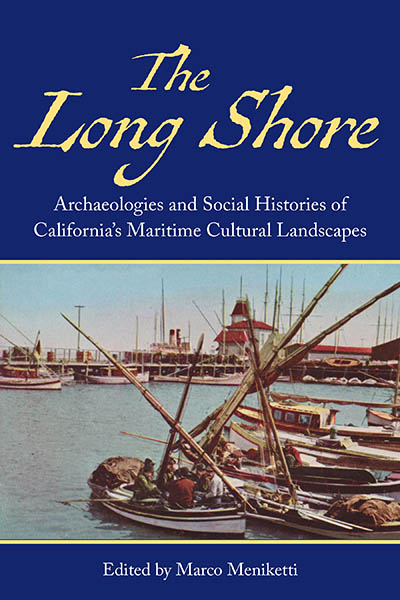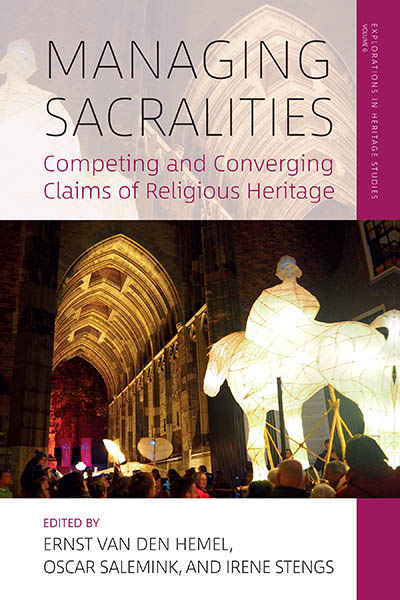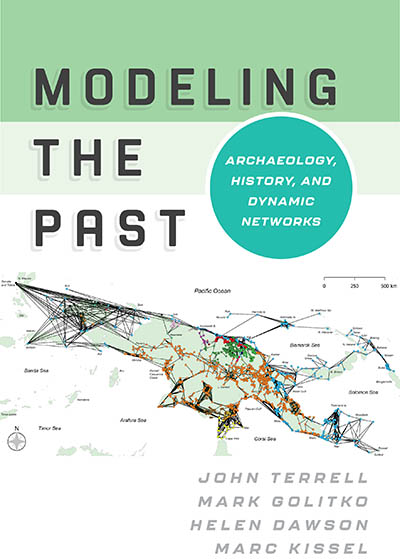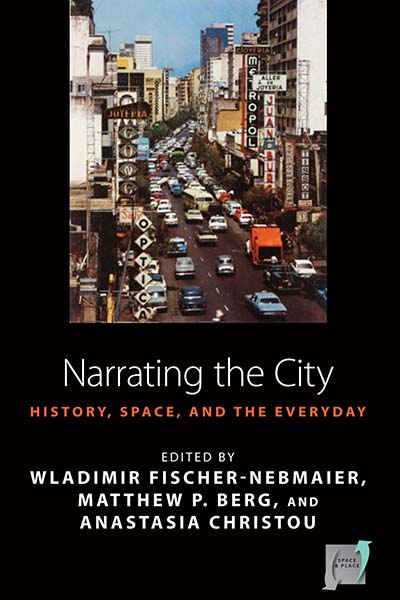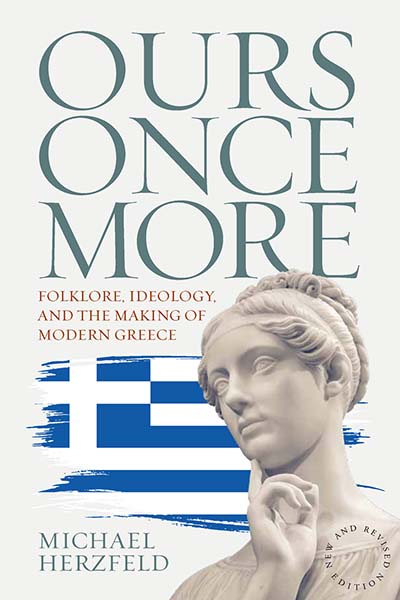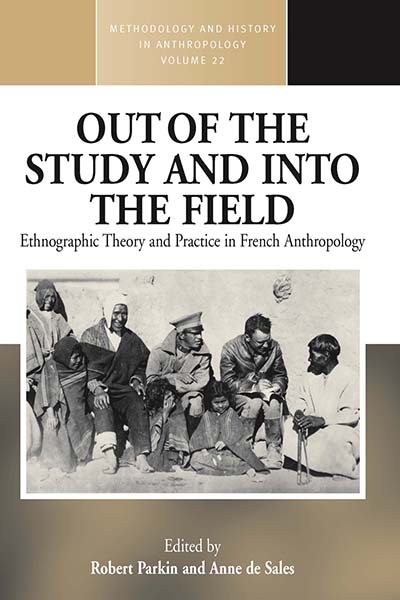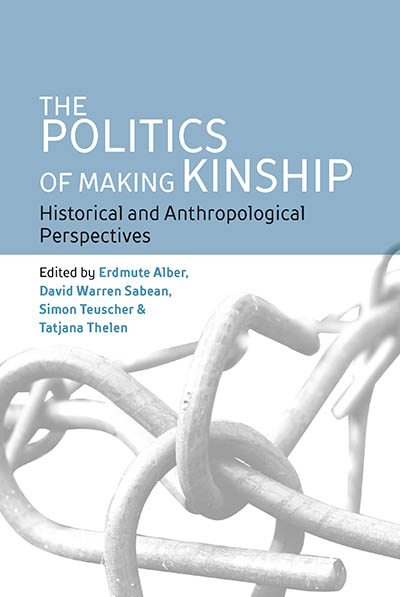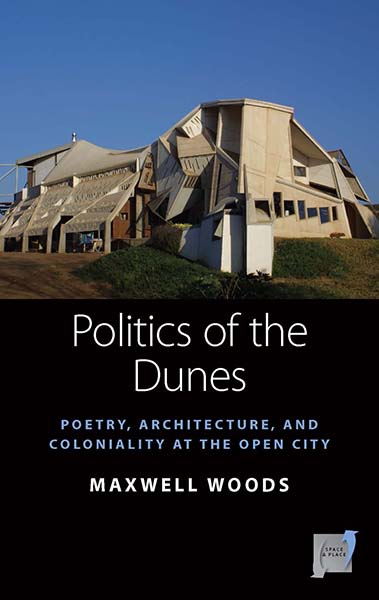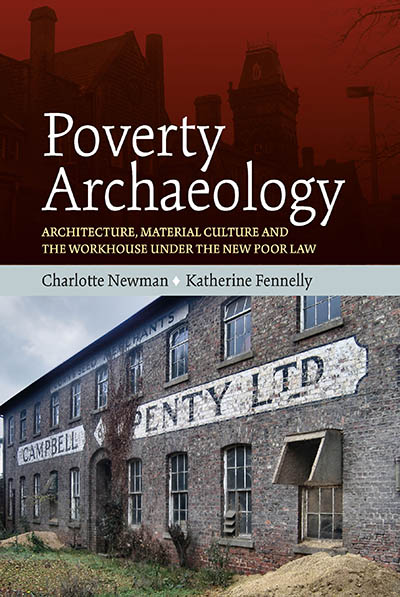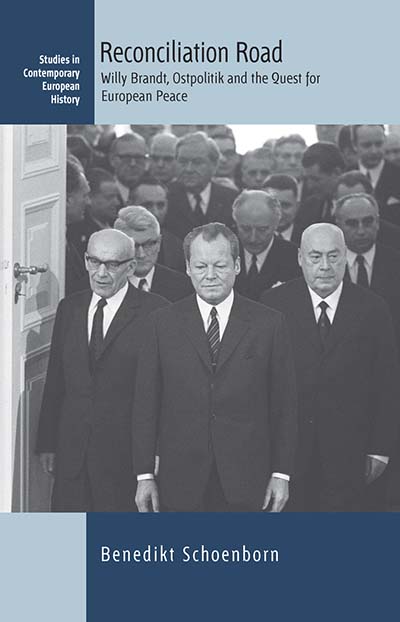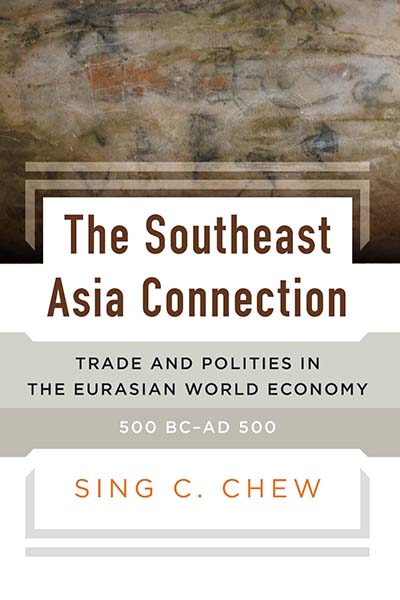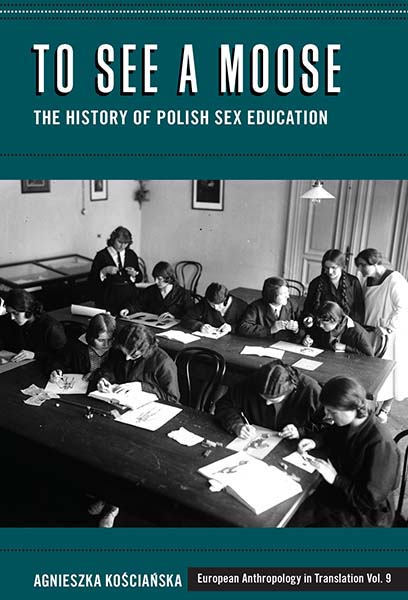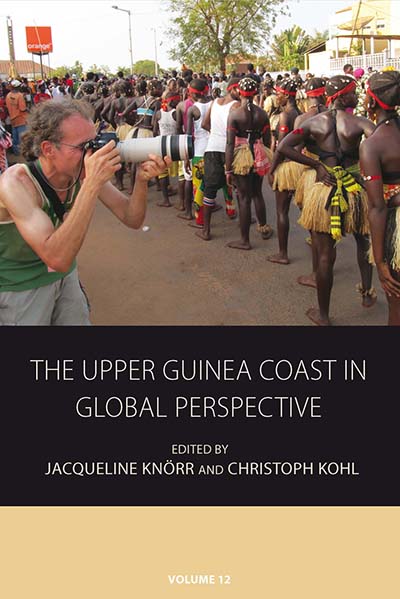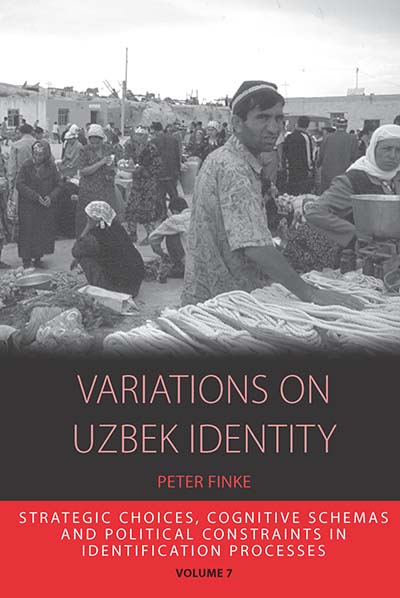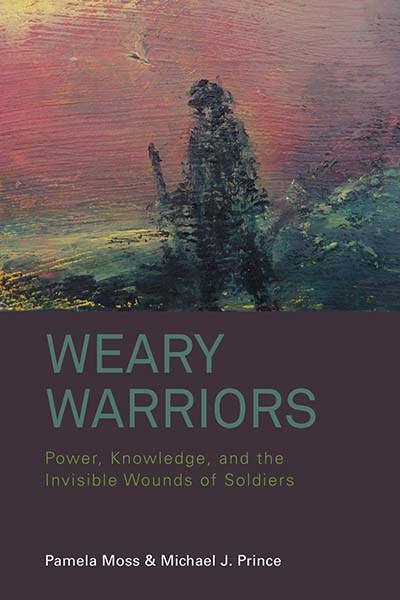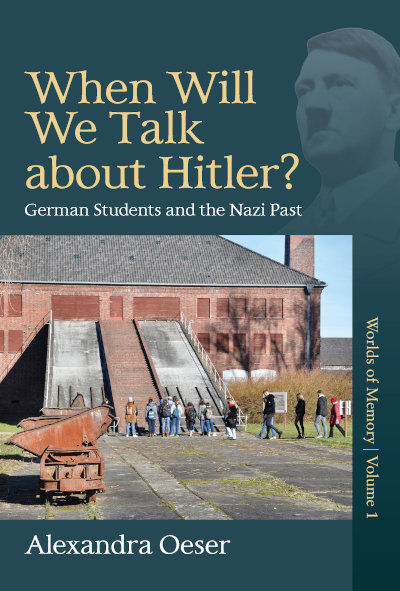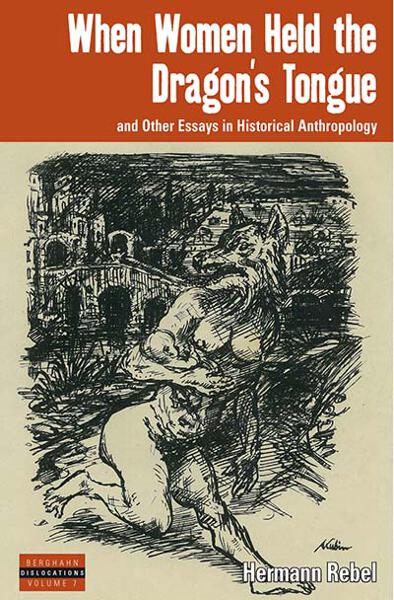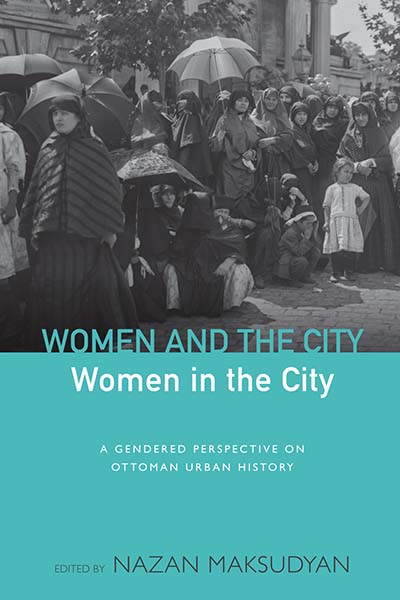Home -> Browse
-

Advocacy and Archaeology
Urban Intersections
Britt, K. M. & George, D. F. (eds)
Archaeologists have a history of being prime agents of change, particularly in advocating for protection and preservation of historical resources. As more social issues intersect with archaeology and historical sites, we see archaeologists and others continuing to advocate for not only historic resources, but for the larger social justice issues that threaten the communities in which these resources reside. Inspired by the idea of revolution and excitement about the ways archaeology is being used in social justice arenas, this volume seeks to visualize archaeology as part of a movement by redefining what archaeology is and does for the greater good.
Subjects: Archaeology History (General) Political and Economic Anthropology
Area: North America
-

Agency in Transnational Memory Politics
Wüstenberg, J. & Sierp, A. (eds)
The dynamics of transnational memory play a central role in modern politics, from postsocialist efforts at transitional justice to the global legacies of colonialism. Yet, the relatively young subfield of transnational memory studies remains underdeveloped and fractured across numerous disciplines, even as nascent, boundary-crossing theories on topics such as multi-vocal, traveling, or entangled remembrance suggest new ways of negotiating difficult political questions. This volume brings together theoretical and practical considerations to provide transnational memory scholars with an interdisciplinary investigation into agency—the “who” and the “how” of cross-border commemoration that motivates activists and fascinates observers.
Subjects: History (General) Sociology Memory Studies
-

Archaeologies of Rules and Regulation
Between Text and Practice
Hausmair, B., Jervis, B., Nugent, R., & Williams, E. (eds)
How can we study the impact of rules on the lives of past people using archaeological evidence? To answer this question, Archaeologies of Rules and Regulation presents case studies drawn from across Europe and the United States. Covering areas as diverse as the use of space in a nineteenth-century U.S. Army camp, the deposition of waste in medieval towns, the experiences of Swedish migrants to North America, the relationship between people and animals in Anglo-Saxon England, these case studies explore the use of archaeological evidence in understanding the relationship between rules, lived experience, and social identity.
Subjects: Archaeology History: Medieval/Early Modern Sociology History (General)
-

Collective and State Violence in Turkey
The Construction of a National Identity from Empire to Nation-State
Astourian, S. & Kévorkian, R. (eds)
Turkey has gone through significant transformations over the last century—from the Ottoman Empire and Young Turk era to the Republic of today—but throughout it has demonstrated troubling continuities in its encouragement and deployment of mass violence. In particular, the construction of a Muslim-Turkish identity has been achieved in part by designating “internal enemies” at whom public hatred can be directed. This volume provides a wide range of case studies and historiographical reflections on the alarming recurrence of such violence in Turkish history, as atrocities against varied ethnic-religious groups from the nineteenth century to today have propelled the nation’s very sense of itself.
Subjects: History (General) Genocide History Peace and Conflict Studies
Area: Middle East & Israel
-

Commerce as Politics
The Two Centuries of Struggle for Basotho Economic Independence
Maliehe, S. M.
This is the first comprehensive economic history of the Basotho people of Southern Africa (in colonial Basutoland, then Lesotho) and spans from the 1820s to the present day. The book documents what the Basotho have done on their own account, focusing on their systematic exclusion from trade and their political efforts to insert themselves into their country’s commerce. Although the colonial and post-colonial periods were unfavourable to the Basotho, they have, before and after colonial rule, launched impressive commercial initiatives of their own, which bring hope for greater development and freedom in their struggle for economic independence.
Subjects: History (General) Political and Economic Anthropology Colonial History
Area: Africa
-

Critical Public Archaeology
Confronting Social Challenges in the 21st Century
Westmont, V. C. (ed)
Critical approaches to public archaeology have been in use since the 1980s, however only recently have archaeologists begun using critical theory in conjunction with public archaeology to challenge dominant narratives of the past. This volume brings together current work on the theory and practice of critical public archaeology from Europe and the United States to illustrate the ways that implementing critical approaches can introduce new understandings of the past and reveal new insights on the present. Contributors to this volume explore public perceptions of museum interpretations as well as public archaeology projects related to changing perceptions of immigration, the working classes, and race.
Subjects: Archaeology Anthropology (General) History (General)
-

Emplaced Belief
Heritage and Religion Reconsidered
Johnston, J., Gibson, M., Hampson, J. & Whyte, N. (Eds.)
Emplaced Belief is an innovative interdisciplinary volume that explores the conceptual and lived relations between the academic fields of religion and heritage. The Contributors adopt a holistic approach to consider emplacement — a broad interrelation of objects, peoples, histories and places — in the analysis of relations between religion and heritage. To be ‘emplaced’ is to be situated, yet such positioning is the result of multiple conscious and unconscious forces, agencies, discourses, and epistemologies. The volume’s title refers not only to physical locations of import, but also to the role of cultural practices and religious epistemologies in the establishment of religious heritage: the act of emplacement. That is, the religious, social, political and cultural practices that denote ‘heritage’ and the dynamics that revise, reinforce, or remove any such attribution.
Subjects: Heritage Studies Anthropology of Religion History (General) Cultural Studies (General)
-

Ethnographers Before Malinowski
Pioneers of Anthropological Fieldwork, 1870-1922
Rosa, F. & Vermeulen, H. F. (eds)
Focusing on some of the most important ethnographers in early anthropology, this volume explores twelve defining works in the foundational period from 1870 to 1922. It challenges the assumption that intensive fieldwork and monographs based on it emerged only in the twentieth century. What has been regarded as the age of armchair anthropologists was in reality an era of active ethnographic fieldworkers, including women practitioners and Indigenous experts. Their accounts have multiple layers of meaning, style, and content that deserve fresh reading. This reference work is a vital source for rewriting the history of anthropology.
Subjects: Anthropology (General) History (General) Colonial History
-

Expeditionary Anthropology
Teamwork, Travel and the ''Science of Man''
Thomas, M. & Harris, A. (eds)
The origins of anthropology lie in expeditionary journeys. But since the rise of immersive fieldwork, usually by a sole investigator, the older tradition of team-based social research has been largely eclipsed. Expeditionary Anthropology argues that expeditions have much to tell us about anthropologists and the people they studied. The book charts the diversity of anthropological expeditions and analyzes the often passionate arguments they provoked. Drawing on recent developments in gender studies, indigenous studies, and the history of science, the book argues that even today, the ‘science of man’ is deeply inscribed by its connections with expeditionary travel.
Subjects: Anthropology (General) History (General) Travel and Tourism
-

Financialization
Relational Approaches
Hann, C. & Kalb, D. (eds)
Beginning with an original historical vision of financialization in human history, this volume then continues with a rich set of contemporary ethnographic case studies from Europe, Asia and Africa. Authors explore the ways in which finance inserts itself into relationships of class and kinship, how it adapts to non-Western religious traditions, and how it reconfigures legal and ecological dimensions of social organization, and urban social relations in general. Central themes include the indebtedness of individuals and households, the impact of digital technologies, the struggle for housing, financial education, and political contestation.
Subjects: Anthropology (General) Political and Economic Anthropology History (General)
-

Former Neighbors, Future Allies?
German Studies and Ethnography in Dialogue
Weber, A. D. (ed)
German studies scholars from various disciplines often use and reference ethnography, yet do not often present ethnography as a core methodology and research approach. Former Neighbors, Future Allies? emphasizes how German studies engages in methods and theories of ethnography. Through a variety of topics and from multiple perspectives including literature, folklore, history, sociology, and anthropology, this volume draws attention to how ethnography bridges transdisciplinary and international research in German studies.
Subjects: History (General) Anthropology (General)
Area: Germany
-

Heritage, Gentrification and Resistance in the Neoliberal City
Hammami, F., Jewesbury, D., & Valli, C. (eds)
What happens when versions of the past become silenced, suppressed, or privileged due to urban restructuring? In what ways are the interpretations and performances of ‘the past’ linked to urban gentrification, marginalization, displacement, and social responses? Authors explore a variety of attempts to interrupt and interrogate urban restructuring, and to imagine alternative forms of urban organization, produced by diverse coalitions of resisting groups and individuals. Armed with historical narratives, oral histories, objects, physical built environment, memorials, and intangible aspects of heritage that include traditions, local knowledge and experiences, memories, authors challenge the ‘devaluation’ of their neighborhoods in official heritage and development narratives.
Subjects: Heritage Studies Cultural Studies (General) History (General)
-

A History of Oxford Anthropology
Rivière, P. (ed)
Informative as well as entertaining, this volume offers many interesting facets of the first hundred years of anthropology at Oxford University.
Subjects: Theory and Methodology History (General)
Area: Europe
-

Imagining Bosnian Muslims in Central Europe
Representations, Transfers and Exchanges
Šístek, F. (ed)
As a Slavic-speaking religious and ethnic “Other” living just a stone’s throw from the symbolic heart of the continent, the Muslims of Bosnia and Herzegovina have long occupied a liminal space in the European imagination. To a significant degree, the wider representations and perceptions of this population can be traced to the reports of Central European—and especially Habsburg—diplomats, scholars, journalists, tourists, and other observers in the late nineteenth and early twentieth centuries. This volume assembles contributions from historians, anthropologists, political scientists, and literary scholars to examine the political, social, and discursive dimensions of Bosnian Muslims’ encounters with the West since the nineteenth century.
Subjects: History (General) Anthropology of Religion
Area: Central/Eastern Europe
-

In Memory of Times to Come
Ironies of History in Southeastern Papua New Guinea
Demian, M.
Drawing on twenty years of research, this book examines the historical perspective of a Pacific people who saw “globalization” come and go. Suau people encountered the leading edge of missionization and colonialism in Papua New Guinea and were active participants in the Second World War. In Memory of Times to Come offers a nuanced account of how people assess their own experience of change over the course of a critical century. It asks two key questions: What does it mean to claim that global connections are in the past rather than the present or the future, and what does it mean to claim that one has lost one’s culture, but not because anyone else took it away or destroyed it?
Subjects: Anthropology (General) History (General) Cultural Studies (General)
Area: Asia-Pacific
-

Innovation and Implementation
Critical Reflections on New Approaches to Historic Mortuary Data Collection, Analysis, and Dissemination
Mytum, H. & Veit, R. (eds)
Providing a comprehensive set of guidance to assist researchers wishing to carry out, curate and disseminate field research at a historic burial ground, chapters offer up to date methods for surface and subsurface survey and for the recording and archiving of burial monument data. Divided into three parts considering documentary research and recording of mortuary landscapes, reflections on memorial recording projects, and archiving and wider dissemination of data and interpretations. Also included is the archaeological potential of pet cemeteries and other pet memorials. Discussions therefore include how methodologies may or may not be applicable to both human and animal subjects.
Subjects: Archaeology History (General) Anthropology (General)
-

The Life of Property
House, Family and Inheritance in Béarn, South-West France
Jenkins, T.
In Béarn, a region of south-west France, longstanding and resilient ideas of property and practices of inheritance control the destinies of those living in the foothills of the Pyrenees. Based on extensive fieldwork and archival research that combines ethnography and intellectual history, this study explores the long-term continuities of this particular way of life within a broad framework. These local ideas have found expression twice at the national level. First, sociological arguments about the family, proposed by Frédéric Le Play, shaped debates on social reform and the repair of national identity during the last third of the nineteenth century – and these debates would subsequently influence contemporary European thought and social policy. Second, these local ideas entered into late twentieth-century sociological categories through the influential work of Pierre Bourdieu. Through these examples and others, the author illustrates the multi-layered life of these local concepts and practices and the continuing contribution of the local to modern European national history.
Subjects: Theory and Methodology History (General) Sociology
Area: France
-

The Long Shore
Archaeologies and Social Histories of Californias Maritime Cultural Landscapes
Meniketti, M. (ed)
The archaeology of maritime cultural landscapes offers insights into cultural traditions, social transitions, and cultural relationships that reach beyond the narrow confines of waterfronts and beach strands and helps construct meaningful social histories. The long shore of California is not limited to the land that borders the Pacific Ocean, but includes the navigable waters that reach inland, the off-shore islands, and the riverways flow to the sea. Authors investigate the multifaceted character of maritime landscapes and maritime oriented communities in California’s equally diverse cultural landscape; viewed through an archaeological lens, and emphasizing social behavior and community as material culture in order to reveal intersections and commonalities.
Subjects: Archaeology History (General) Anthropology (General)
Area: North America
-

Managing Sacralities
Competing and Converging Claims of Religious Heritage
Hemel, E. van den, Salemink, O., & Stengs, I. (eds)
What happens when religious sites, objects and practices become cultural heritage? What are —religious or secular—sources of expertise and authority that validate and regulate heritage sites, objects and practices? As cultural heritage becomes an increasingly popular and influential frame, these questions arise in diverse and challenging manners. The question who controls, manages, and frames religious heritage, and how, arises with particular urgency. Case studies from Denmark, the Netherlands, Poland, Portugal and the United Kingdom present an analysis of the paradoxes and challenges that arise when religious sites are transformed into heritage.
Subjects: Heritage Studies History (General) Anthropology of Religion
Area: Europe
-

Modeling the Past
Archaeology, History, and Dynamic Networks
Terrell, J., Golitko, M., Dawson, H., and Kissel, M.
How do researchers use dynamic network analysis (DYRA) to explore, model, and try to understand the complex global history of our species? Reduced to bare bones, network analysis is a way of understanding the world around us — a way called relational thinking — that is liberating but challenging. Using this handbook, researchers learn to develop historical and archaeological research questions anchored in DYRA. Undergraduate and graduate students, as well as professional historians and archaeologists can consult on issues that range from hypothesis-driven research to critiquing dominant historical narratives, especially those that have tended to ignore the diversity of the archaeological record.
Subjects: Archaeology History (General) Anthropology (General)
-

Narrating the City
Histories, Space and the Everyday
Fischer-Nebmaier, W., Berg, M. P., & Christou, A. (eds)
In recent decades, the insight that narration shapes our perception of reality has inspired and influenced the most innovative historical accounts. Focusing on new research, this volume explores the history of non-elite populations in cities from Caracas to Vienna, and Paris to Belgrade. Narration is central to the theme of each contribution, whether as a means of description, a methodological approach, or basic story telling. This book brings together research that both asks classical socio-historical questions and takes narration seriously, engaging with novels, films, local history accounts, petitions to municipal authorities, and interviews with alternative cinema activists.
Subjects: Urban Studies History (General) Sociology
-

Ours Once More
Folklore, Ideology, and the Making of Modern Greece
Herzfeld, M.
When this work – one that contributes to both the history and anthropology fields – first appeared in 1982, it was hailed as a landmark study of the role of folklore in nation-building. It has since been highly influential in reshaping the analysis of Greek and European cultural dynamics. In this expanded edition, a new introduction by the author and an epilogue by Sharon Macdonald document its importance for the emergence of serious anthropological interest in European culture and society and for current debates about Greece’s often contested place in the complex politics of the European Union.
Subjects: Anthropology (General) History (General)
Area: Southern Europe
-

Out of the Study and Into the Field
Ethnographic Theory and Practice in French Anthropology
Parkin, R.& de Sales, A. (eds)
Outside France, French anthropology is conventionally seen as being dominated by grand theory produced by writers who have done little or no fieldwork themselves, and who may not even count as anthropologists in terms of the institutional structures of French academia. This applies to figures from Durkheim to Derrida, Mauss to Foucault, though there are partial exceptions, such as Lévi-Strauss and Bourdieu. It has led to a contrast being made, especially perhaps in the Anglo-Saxon world, between French theory relying on rational inference, and British empiricism based on induction and generally skeptical of theory. While there are contrasts between the two traditions, this is essentially a false view. It is this aspect of French anthropology that this collection addresses, in the belief that the neglect of many of these figures outside France is seriously distorting our view of the French tradition of anthropology overall. At the same time, the collection will provide a positive view of the French tradition of ethnography, stressing its combination of technical competence and the sympathies of its practitioners for its various ethnographic subjects.
Subjects: Theory and Methodology History (General)
Area: France
-

The Politics of Making Kinship
Historical and Anthropological Perspectives
Alber, E. (ed)
The long tradition of Western political thought included kinship in models of public order, but the social sciences excised it from theories of the state, public sphere, and democratic order. Kinship has, however, neither completely disappeared from the political cultures of the West nor played the determining social and political role ascribed to it elsewhere. Exploring the issues that arise once the divide between kinship and politics is no longer taken for granted, The Politics of Making Kinship demonstrates how political processes have shaped concepts of kinship over time and, conversely, how political projects have been shaped by specific understandings, idioms and uses of kinship. Taking vantage points from the post-Roman era to early modernity, and from colonial imperialism to the fall of the Berlin Wall and beyond this international set of scholars place kinship centerstage and reintegrate it with political theory.
Subjects: History (General) Political and Economic Anthropology Anthropology (General)
Area: Europe
-

Politics of the Dunes
Poetry, Architecture, and Coloniality at the Open City
Woods, M.
Founded in the late 1960s on Chile’s Pacific coast, the Open City (la Ciudad Abierta) has become an internationally recognized site of cutting-edge architectural experimentation. Yet with a global reputation as an apolitical collective, little has been discussed about the Open City’s relationship with Chilean history and politics. Politics of the Dunes explores the ways in which the Open City’s architectural and urban practice is devoted to keeping open the utopian possibility for multiplicity, pluralism, and democratization in the face of authoritarianism, a powerful mode of postcolonial environmental urbanism that can inform architectural practices today.
Subjects: Urban Studies Sociology History (General)
Area: Latin America and the Caribbean
-

Poverty Archaeology
Architecture, Material Culture and the Workhouse under the New Poor Law
Newman, C. & Fennelly, K.
The Poor Laws in the United Kingdom left a built and material legacy of over two centuries of legislative provision for the poor and infirm. Workhouses represent the first centralized, state-organized system for welfare, though they maintain a notorious historical reputation. Workhouses were intended to be specialized institutions, with dedicated subdivisions for the management of different categories of inmate. Examining the workhouse provision from an archaeological perspective, the authors demonstrate the heterogeneity of the Poor Law system from a built heritage perspective. This volume forms a social archaeology of the lived experience of poverty and health in the nineteenth century.
Subjects: Archaeology History (General) Political and Economic Anthropology
Area: Europe
-

Reconciliation Road
Willy Brandt, Ostpolitik and the Quest for European Peace
Schoenborn, B.
Among postwar political leaders, West German Chancellor Willy Brandt played one of the most significant roles in reconciling Germans with other Europeans and in creating the international framework that enabled peaceful reunification in 1990. Based on extensive archival research, this book provides a comprehensive analysis of Brandt’s Ostpolitik from its inception until the end of the Cold War through the lens of reconciliation. Here, Benedikt Schoenborn gives us a Brandt who passionately insisted on a gradual reduction of Cold War hostility and a lasting European peace, while remaining strategically and intellectually adaptable in a way that exemplified the ‘imaginativeness of history’.
Subjects: History (General) History: 20th Century to Present Peace and Conflict Studies
Area: Germany
-

The Southeast Asia Connection
Trade and Polities in the Eurasian World Economy, 500 BC–AD 500
Chew, S. C.
The contribution of Southeast Asia to the world economy (during the late prehistoric and early historic periods) has not received much attention. It has often been viewed as a region of peripheral entrepôts, especially in the early centuries of the current era. Recent archaeological evidence revealed the existence of established and productive polities in Southeast Asia in the early parts of the historic period and earlier. This book recalibrates these interactions of Southeast Asia with other parts of the world economy, and gives the region its due instead of treating it as little more than of marginal interest.
Subjects: Archaeology History (General) Political and Economic Anthropology
Area: Asia-Pacific
-

To See a Moose
The History of Polish Sex Education
Kościańska, A.
Guiding the reader through the development of sex education in Poland, Agnieszka Kościańska looks at how it has changed from the 19th century to the present day. The book compares how sex was described in school textbooks, including those scrapped by the communists for fear of offending religious sentiments, and explores how the Catholic church retained its power in Poland under various regimes. The book also identifies the women and men who changed the way sex was written about in the country, and how they established the field of Polish sex education.
Subjects: Anthropology (General) Gender Studies and Sexuality History (General)
Area: Central/Eastern Europe
-

The Upper Guinea Coast in Global Perspective
Knörr, J. & Kohl, C. (eds)
For centuries, Africa’s Upper Guinea Coast region has been the site of regional and global interactions, with societies from different parts of the African continent and beyond engaging in economic trade, cultural exchange and various forms of conflict. This book provides a wide-ranging look at how such encounters have continued into the present day, identifying the disruptions and continuities in religion, language, economics and various other social phenomena. These accounts show a region that, while still grappling with the legacies of colonialism and the slave trade, is both shaped by and an important actor within ever-denser global networks, exhibiting consistent transformation and creative adaptation.
Subjects: Anthropology (General) Environmental Studies (General) History (General) Colonial History
Area: Africa
-

Variations on Uzbek Identity
Strategic Choices, Cognitive Schemas and Political Constraints in Identification Processes
Finke, P.
Throughout its history the concept of “Uzbekness,” or more generally of a Turkic-speaking sedentary population, has continuously attracted members of other groups to join, as being Uzbek promises opportunities to enlarge ones social network. Accession is comparatively easy, as Uzbekness is grounded in a cultural model of territoriality, rather than genealogy, as the basis for social attachments. It acknowledges regional variation and the possibility of membership by voluntary decision. Therefore, the boundaries of being Uzbek vary almost by definition, incorporating elements of local languages, cultural patterns and social organization. This book combines an historical analysis with thorough ethnographic field research, looking at differences in the conceptualization of group boundaries and the social practices they entail. It does so by analysing decision-making processes by Uzbeks on the individual as well as cognitive level and the political configurations that surround them.
Subjects: Anthropology (General) History (General) Sociology
Area: Asia
-

Weary Warriors
Power, Knowledge, and the Invisible Wounds of Soldiers
Moss, P. & Prince, M. J.
As seen in military documents, medical journals, novels, films, television shows, and memoirs, soldiers’ invisible wounds are not innate cracks in individual psyches that break under the stress of war. Instead, the generation of weary warriors is caught up in wider social and political networks and institutions—families, activist groups, government bureaucracies, welfare state programs—mediated through a military hierarchy, psychiatry rooted in mind-body sciences, and various cultural constructs of masculinity. This book offers a history of military psychiatry from the American Civil War to the latest Afghanistan conflict. The authors trace the effects of power and knowledge in relation to the emotional and psychological trauma that shapes soldiers’ bodies, minds, and souls, developing an extensive account of the emergence, diagnosis, and treatment of soldiers’ invisible wounds.
Subjects: Sociology History (General) Peace and Conflict Studies
Areas: North America Europe
-

When Will We Talk About Hitler?
German Students and the Nazi Past
Oeser, A.
For more than half a century, discourses on the Nazi past have powerfully shaped German social and cultural policy. Specifically, an institutional determination not to forget has expressed a “duty of remembrance” through commemorative activities and educational curricula. But as the horrors of the Third Reich retreat ever further from living memory, what do new generations of Germans actually think about this past? Combining observation, interviews, and archival research, this book provides a rich survey of the perspectives and experiences of German adolescents from diverse backgrounds, revealing the extent to which social, economic, and cultural factors have conditioned how they view representations of Germany’s complex history.
Subjects: History (General) Educational Studies Anthropology (General) Memory Studies
Area: Germany
-

When Women Held the Dragon's Tongue
and Other Essays in Historical Anthropology
Rebel, H.
“Peasants tell tales,” one prominent cultural historian tells us (Robert Darnton). Scholars must then determine and analyze what it is they are saying and whether or not to incorporate such tellings into their histories and ethnographies. Challenging the dominant culturalist approach associated with Clifford Geertz and Marshall Sahlins among others, this book presents a critical rethinking of the philosophical anthropologies found in specific histories and ethnographies and thereby bridges the current gap between approaches to studies of peasant society and popular culture. In challenging the methodology and theoretical frameworks currently used by social scientists interested in aspects of popular culture, the author suggests a common discursive ground can be found in an historical anthropology that recognizes how myths, fairytales and histories speak to a universal need for imagining oneself in different timescapes and for linking one’s local world with a “known” larger world.
Subjects: Anthropology (General) History (General) Literary Studies Cultural Studies (General)
Area: Europe
-

Women and the City, Women in the City
A Gendered Perspective on Ottoman Urban History
Maksudyan, N. (ed)
An attempt to reveal, recover and reconsider the roles, positions, and actions of Ottoman women, this volume reconsiders the negotiations, alliances, and agency of women in asserting themselves in the public domain in late- and post-Ottoman cities. Drawing on diverse theoretical backgrounds and a variety of source materials, from court records to memoirs to interviews, the contributors to the volume reconstruct the lives of these women within the urban sphere. With a fairly wide geographical span, from Aleppo to Sofia, from Jeddah to Istanbul, the chapters offer a wide panorama of the Ottoman urban geography, with a specific concern for gender roles.
Subjects: Gender Studies and Sexuality Urban Studies History (General)
Area: Middle East & Israel


